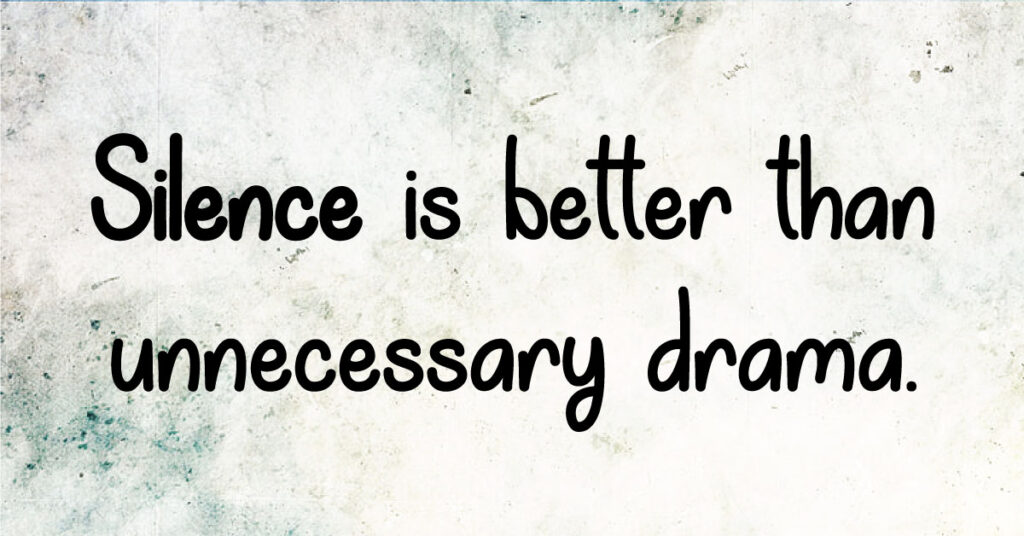In the digital age, social media stands as a transformative force that has redefined how we communicate and interact with one another. These platforms, be it Facebook, Instagram, Twitter, or LinkedIn, have made it possible to connect with people across the globe, share our thoughts and ideas, and experience the world through the lens of others.
However, with this unprecedented access and visibility comes a significant responsibility. Every post, comment, like, or share we make leaves a digital footprint, creating a lasting online persona. This persona can shape perceptions about us, influence relationships, and even impact our professional lives. Therefore, it’s crucial to navigate the social media landscape with a sense of awareness and purpose.
Understanding the power of social media and its potential implications is the first step towards using these platforms wisely and effectively. In the following sections, we’ll delve deeper into this topic and discuss several things one should avoid doing on social media to maintain a positive and respectful online presence.
Here are eight things you should never do on social media.
1. Oversharing Personal Information
Sharing your life online can sometimes feel liberating, providing a platform for self-expression and connection with others. However, oversharing personal information can expose you to potential risks like identity theft or cyber-stalking, as unscrupulous individuals could misuse such data. Be cautious about posting sensitive details like your home address, phone number, or financial information.
These elements of your personal life can become tools in the wrong hands. Therefore, it’s best to keep such information private to maintain your safety and security online, ensuring that your digital interactions remain positive and safe.
2. Engaging in Online Arguments
The interactive nature of social media makes it a common ground for intense discussions and debates. However, these can often escalate into heated arguments that not only drain your energy but rarely lead to any productive outcomes. When expressing your opinions, it’s crucial to do so respectfully, avoiding confrontations that may breed unnecessary hostility.
It’s essential to remember that everyone is entitled to their views, and differences in opinion are natural. Maintaining a level of decorum and respect in these interactions is vital to fostering a healthy online environment where diverse perspectives can coexist harmoniously.
3. Sharing False Information
The prevalence of misinformation and fake news on social media platforms is an alarming issue in the digital age. The rapid spread of false information, even when done unintentionally, can lead to widespread confusion, misinformation, and even panic. Therefore, it is crucial to fact-check any information before sharing it on your social media platforms.
Your credibility as a user is at stake, and consistently sharing reliable, verified information not only protects that credibility but also fosters trust among your followers. Ultimately, we each play a role in creating a responsible and trustworthy digital community.
4. Ignoring Comments or Messages
Ignoring comments or messages from your social media followers can create an impression of being unapproachable or indifferent. It’s crucial to engage with your audience by responding to their queries and acknowledging their feedback. This interaction not only builds a rapport with your followers but also fosters a sense of community.
Actively engaging with your audience makes them feel heard and valued, strengthening their connection with you. Ultimately, this practice enhances your online presence and contributes to creating a vibrant and interactive digital community.
5. Posting Inappropriate Content
Posting inappropriate or offensive content on social media can have severe repercussions, including damaging your online reputation and potentially leading to your account being suspended or banned. It’s crucial to respect the community guidelines of the platform you’re using, as these rules are designed to maintain a safe and respectful online environment.
Before posting any content, consider its potential impact and whether it could be deemed offensive, disrespectful, or inappropriate. A moment’s thought can save you from unintended harm to your online persona. Remember, your digital behavior should mirror the respect and decorum you’d display in person.
6. Neglecting Your Privacy Settings
Privacy settings on social media platforms serve as a crucial protective measure for your online presence. Neglecting these settings can inadvertently expose your personal information to a wider audience than you might prefer, potentially leading to unwanted attention or breach of privacy.
It’s essential to regularly review and update your privacy settings to ensure that your content is only being shared with your intended audience. This practice not only safeguards your personal details but also provides control over who can interact with your posts. Remember, your online privacy is just as important as your offline privacy, and it’s in your hands to protect it.
7. Constant Self-Promotion
While it’s perfectly acceptable to share your achievements and promote your work on social media, constant self-promotion can potentially alienate your followers. Striking a balance is key in maintaining an engaging online presence. Alongside showcasing your work, it’s important to share valuable content that resonates with your audience, engage in meaningful discussions, and show genuine interest in others.
This approach not only makes your online presence more appealing but also fosters a sense of community among your followers. Remember, social media is a platform for interaction and engagement, not just self-promotion.
8. Using Social Media When Emotional
While it’s natural to want to share our emotions on social media, posting when you’re in the throes of strong feelings can often result in regrettable content. Venting frustrations or expressing sadness while in an emotional state may lead to posts that don’t accurately represent your usual demeanor or perspective. It’s advisable to wait until you’re calm and composed before sharing your thoughts and feelings online.
Adopting this approach can help you avoid potential misunderstandings, negative reactions from your followers, or damage to your online reputation. Remember, social media is a public platform and mindfulness in communication is key to maintaining healthy online relationships.
Final Thought
Social media, indeed, is a powerful platform for connection, sharing, and learning. Its vast reach and immediacy can bring about incredible opportunities when used wisely. However, it is equally crucial to engage with it responsibly and respectfully. By steering clear of common pitfalls such as oversharing, neglecting privacy settings, constant self-promotion, and posting when overly emotional, you can maintain a positive, balanced, and healthy presence on social media. Remember, the key to a successful online presence lies in mindful communication, respecting boundaries, and fostering genuine connections.







